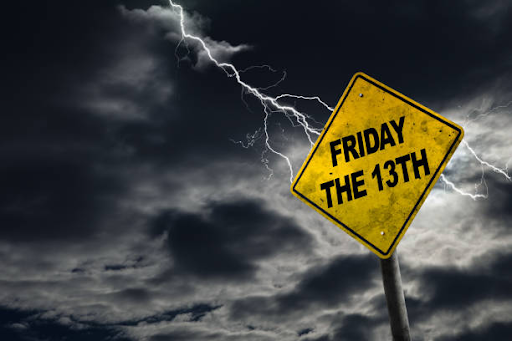
What is the history of Friday the 13th? Why do we attach superstitious sentiments to the 13th day of a month that happens to fall on a Friday? Have you ever wondered why we associate it with trepidation and bad omens?
Firstly, unlucky Fridays can be traced back to Biblical tradition. Adam and Eve supposedly ate the forbidden fruit on a Friday. Cain killed Abel on a Friday. Of course, Jesus’ crucifixion landed on a Friday in what is known as Good Friday. In Judeo-Chiristian doctrine, since the week starts on Sundays, Fridays are the sixth day of the week. The number six is shy of the completeness of the number seven, making it a number associated with sin.
Next, the number 13 comes with its own expansive sleuth of bad omens. In Biblical scripture, Judas was the 13th infamous attendant at Jesus’ supper. Because of this, common dinner party etiquette advises against having only 13 guests at a dinner. The Babylonian king Hammurabi might have purposely omitted a 13th rule from his Code of Hammurabi. In Norse Mythology, Loki was the 13th God at the Valhalla feast that deceived the blind God Hod to kill Baldur, son of Odin.
Additionally, the number 13 exceeds the completeness of the number twelve – Jesus’ twelve apostles, twelve stars in the Book of Revelation, and twelve months in a Gregorian calendar year. The stigma for the number 13 was so heightened that towards the end of the 19th century, the Thirteen Club was formed to dispel the superstition by hosting dinner parties with 13 guests, dining on the 13th day of each month, and even including the number in membership dues.
The Victorians, already known for insurmountably bizarre traditions like eating the unwrapped flesh of mummies, popularized the merging of the haunting associations of Fridays with the fearsome folklore of 13. Because of the rising interest in folkloric documentation and sensationalized superstitions of death, Friday the 13th was gradually found in the cultural fabric of daily life.
Well before Victorian sensationalism, the superstitious “holiday” was cemented by the arrest of the Knights Templar, a Catholic order that was founded during the Crusades. As an institutional order, they accumulated immense power and wealth and were even granted tax exemption by the Pope. Once they began retreating from Muslim armies and denying loan reimbursement to King Philip IV of France, on Friday, Oct. 13th, 1307, knights of the order were prosecuted, tortured, and burned at the stake, completely disbanding the organization.
In the 20th century, Friday the 13th continued its popular momentum through Thomas W. Lawson’s mystery novel, Friday, The Thirteenth. And, of course, several decades later, the ’80s slasher sensation Friday the 13th completely propelled the unlucky day into mainstream discussions and superstitious indulgences.
Even with its baneful yet exaggerated connotations, Friday the 13th has a fascinating blend of history, myth, and psychology. This seemingly innocuous date continues to captivate our imaginations. Whether you embrace it as an intriguing quirk of human behavior or avoid it at all costs, Friday the 13th remains a unique symbol of superstition that transcends history and even human psychology through a complex tapestry of beliefs and fears.
So, the next time you find yourself facing a Friday the 13th, take a moment to reflect on why the date carries so much cultural and historical weight. Whether you choose to embrace it, avoid it, or simply observe it as just another day, Friday the 13th remains a reminder of our enduring relationship with superstition and the enduring power of myth in our lives.













